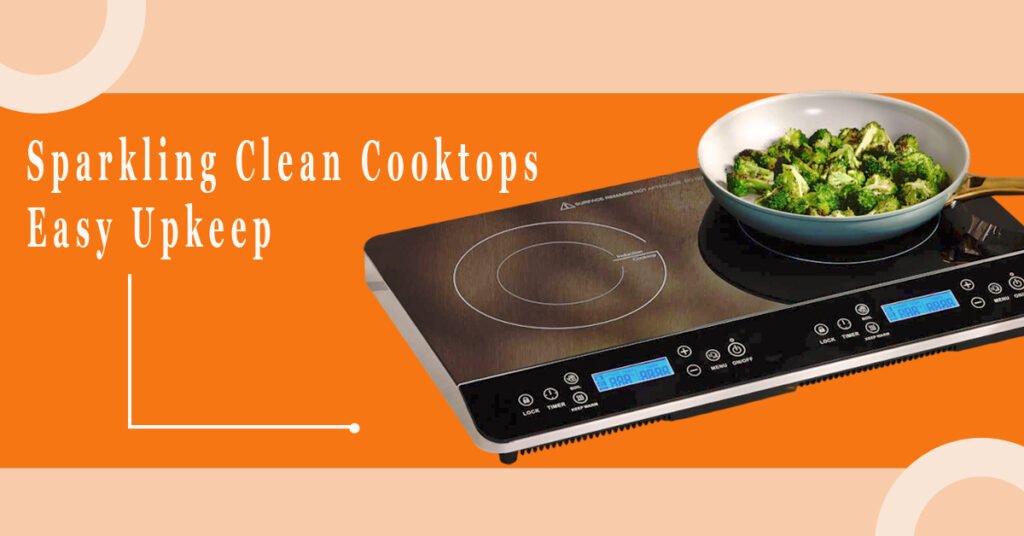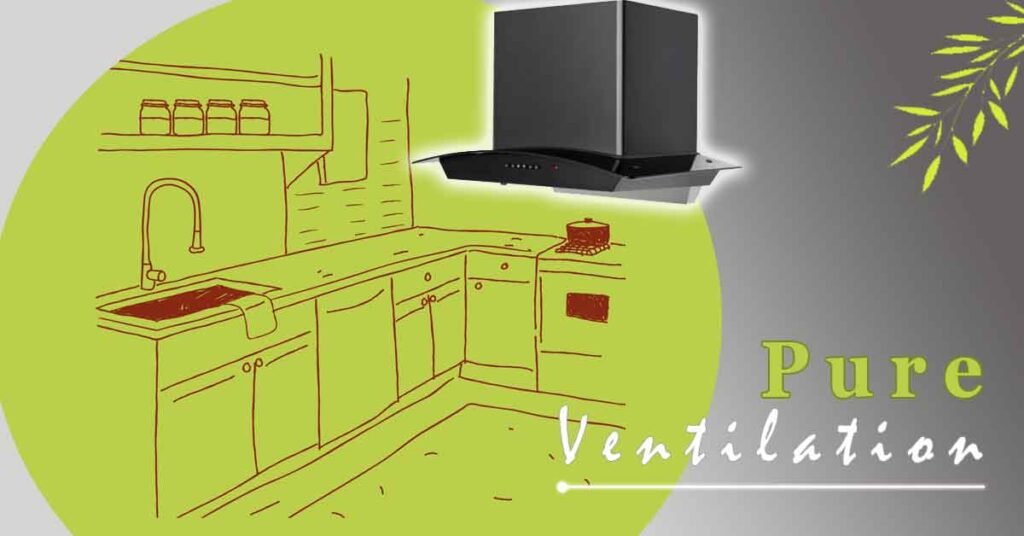Induction Cooktop Care and Maintenance: 7 Proven Tips for Ultimate Results

Induction cooktops have changed the way we cook, offering precise, safe, and efficient cooking. To keep your induction cooktop in great shape and make it last for years, you need to take good Induction Cooktop care. This article will show you how to maintain your cooktop, answer common questions about scratches, and discuss what affects its lifespan.
Understanding Induction Cooktops
Before we talk about care and maintenance, let’s understand how induction cooktops work. Unlike gas or electric cooktops, induction cooktops use electromagnetic fields to heat the cookware directly. Here are the key benefits:
Energy Efficiency: Induction cooktops heat up quickly and use energy efficiently because the heat goes straight to the cookware.
Safety: The cooktop surface remains cool, lowering the chance of burns.
Precision: Induction cooktops offer precise temperature control, which is perfect for cooking delicate dishes.
The glass-ceramic surface of induction cooktops needs special care to keep it looking good and working well.
Is Maintaining an Induction Cooktop Difficult?
Induction Cooktop care isn’t hard, but it does require regular care and the right products. Here are the main points of induction cooktop care:
Regular Cleaning
- Daily Wipe-Down:
Routine Cleaning: After each use, once the cooktop has cooled down, wipe it with a damp, soft cloth or sponge. This helps remove any spills or splatters before they become tough to clean.
Avoiding Residue Build-Up: Use a mild detergent if needed, but make sure it’s safe for glass-ceramic surfaces. Wipe the cooktop dry with a clean cloth to avoid streaks.
- Deep Cleaning:
Non-Abrasive Cleaners: For a deeper clean, use a non-abrasive cleaner designed for glass or ceramic cooktops. Apply the cleaner, let it sit for a few minutes, then wipe it off with a soft cloth.
Removing Stubborn Stains: For tougher stains or residue, use a cooktop scraper made for glass surfaces. Hold the scraper at a 45-degree angle and softly remove the residue with gentle scraping.
- Avoiding Harsh Chemicals:
Safe Cleaning Products: Don’t use harsh chemicals or abrasive materials like steel wool or scouring pads. These can damage the cooktop surface. Stick to products labeled safe for induction or glass-ceramic cooktops.
Preventing Damage
- Avoiding Scratches:
Using Proper Cookware: Make sure the bottoms of your pots and pans are clean and dry before placing them on the cooktop. Residue or moisture can cause stains or burns. To prevent scratching the surface, use cookware with smooth, flat bottoms.
Lifting, Not Sliding: Always lift cookware off the surface instead of sliding it to avoid scratches.
- Handling Spills Immediately:
Immediate Cleanup: Clean spills as soon as they happen, especially sugary substances, which can cause discoloration or etching if left on the surface. Use a soft cloth or sponge and mild detergent for cleanup.
- Using Cookware Safely:
Avoiding Heavy Impact: Don’t drop heavy cookware or objects onto the cooktop, as this can cause cracks or breakage. Be careful when placing pots and pans on the surface.
- Monitoring Cooktop Usage:
Temperature Control: Avoid excessive heat, as it can cause the cooktop to overheat and potentially damage the surface. Use the right heat settings for different cooking tasks.
Do Induction Cooktops Scratch Easily?
The glass-ceramic surface of induction cooktops is durable but can scratch if not properly cared for. Here are a few suggestions to reduce the risk:
- Choosing the Right Cookware:
Smooth Bottoms: Use cookware with smooth, flat bottoms to reduce the risk of scratching. Avoid using cast iron or stoneware directly on the cooktop unless it has a smooth, enamel-coated bottom.
- Cleaning Cookware:
Residue-Free: Make sure the bottoms of your pots and pans are free from food residue or abrasive particles that can scratch the cooktop surface.
- Using Cooktop Protectors:
Protective Mats: Consider using silicone or fiberglass cooktop protectors. These mats can be placed on the cooktop surface to protect against scratches and spills.
- Proper Storage:
Avoiding Contact: Store heavy or potentially abrasive cookware separately to prevent accidental contact with the cooktop surface when not in use.
Induction Cooktops Longevity
With proper Induction Cooktop care and maintenance, an induction cooktop can last a long time. Here are factors that contribute to their longevity:
Quality of the Cooktops
- Brand and Model:
Reputable Brands: High-quality induction cooktops from reputable brands tend to be more durable and perform better. Investing in a reliable model can save you from frequent repairs or replacements.
- Warranty and Support:
Extended Warranties: Many manufacturers offer extended warranties and customer support for their products. Register your cooktop and take advantage of any available warranties.
Proper Installation
- Professional Installation:
Expert Setup: Have your induction cooktop installed by a professional to ensure it’s set up correctly. Proper installation can prevent issues related to electrical connections or improper placement.
- Ventilation:
Adequate Ventilation: Ensure proper ventilation around the cooktop to prevent overheating and extend its lifespan.
Regular Maintenance
- Routine Inspections:
Checking for Damage: Regularly inspect the cooktop for any signs of damage, like cracks or discoloration. Deal with any problems promptly to stop them from getting worse.
- Cleaning Routine:
Consistent Cleaning: Maintain a regular cleaning routine to prevent the buildup of residue or stains that can affect the cooktop’s performance.
Usage Habits
- Mindful Cooking:
Avoiding Overheating: Use the appropriate heat settings for different cooking tasks to avoid excessive heat that can damage the cooktop.
Gentle Handling: Handle cookware gently to prevent scratches or impact damage.
- Avoiding Heavy Loads:
Weight Considerations: Be mindful of the weight of cookware and food being placed on the cooktop. Too much weight can stress the surface and result in cracks forming.
Conclusion
Induction Cooktop care is not difficult, but it does require careful attention and the right care routines. By following proper cleaning and maintenance practices, using the right cookware, and handling the cooktop with care, you can keep your induction cook top looking and working like new for years. While the glass-ceramic surface can scratch if not properly cared for, taking preventive measures can significantly reduce this risk. Ultimately, the longevity of your induction cook top will depend on its quality, proper installation, regular maintenance, and mindful usage. With the right approach, your induction cooktop can be a reliable and efficient part of your kitchen for a long time.


